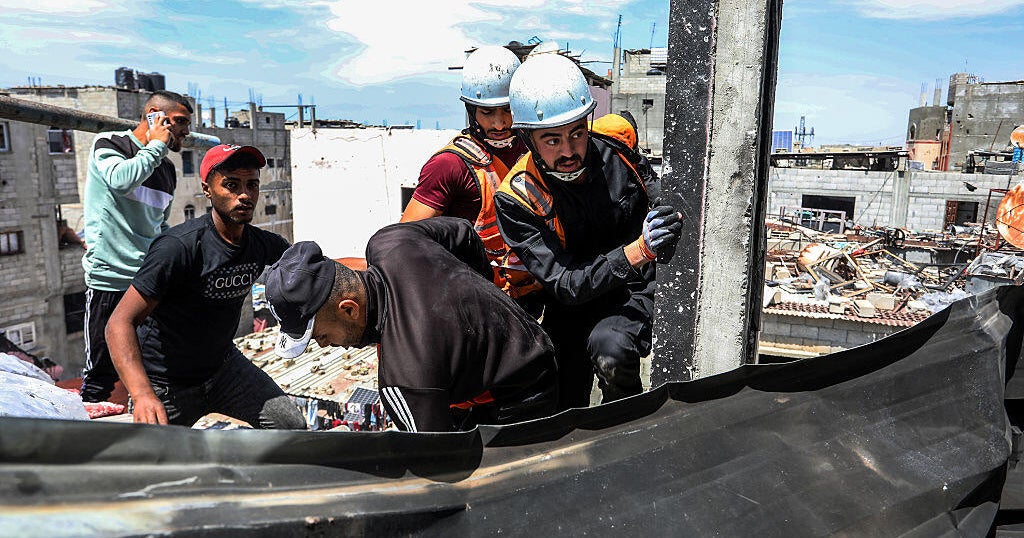The ongoing conflict in Gaza continues to escalate, leading to a devastating toll. Recent reports from Palestinian officials indicate that over 52,000 lives have been lost since Israel resumed its military offensive against Hamas. As the situation unfolds, humanitarian conditions within the territory are deteriorating rapidly, causing acute shortages of food and medical supplies among a population already strained by ongoing warfare.
| Article Subheadings |
|---|
| 1) Humanitarian Crisis Escalates |
| 2) Ceasefire Breaks Down |
| 3) Hostage Situation |
| 4) International Reactions |
| 5) Casualty Statistics and Claims |
Humanitarian Crisis Escalates
According to the latest updates from the Hamas-run Health Ministry, the conflict has left over 52,000 people dead, with reports indicating that the death toll is rapidly climbing. On a particularly tragic day, hospitals received the remains of 51 Palestinians killed in Israeli airstrikes. The grim figures underscore the catastrophic humanitarian situation in Gaza, where basic necessities are in short supply due to ongoing military operations and a blockade that has lasted nearly two months.
Local aid organizations report that food shortages have reached critical levels, with many residents relying on canned goods, rice, and lentils for sustenance. Fresh produce and other essential items are becoming increasingly rare and unaffordable for the majority of the population. Health officials warn that malnutrition rates among children are escalating rapidly, as families grapple with the absence of a balanced diet.
Ceasefire Breaks Down
The fragile ceasefire that had briefly held in the region was shattered on March 18, 2023, when Israel launched a surprise bombardment targeting Hamas after months of escalating tensions. The renewed military offensive has seen ground forces move deeper into Gaza, controlling approximately 50% of the territory, particularly around the city of Rafah.
Israeli officials maintain that the military operations aim to weaken Hamas and pressure the group to release hostages taken during an attack on October 7, 2022, which instigated the war. The Israeli government asserts that the renewed offensive is justified and necessary for national security, despite widespread condemnation from international observers.
Hostage Situation
One of the primary issues surrounding the conflict is the status of hostages taken by Hamas during the initial attack. Reports indicate that around 251 individuals were abducted, with most having been released through ceasefire negotiations or other agreements. However, 59 hostages remain, and Hamas has stated that it will only release them in exchange for Palestinian prisoners, a long-standing demand in peace talks.
Israeli Prime Minister, Benjamin Netanyahu, has publicly vowed to not cease operations until all hostages are returned and Hamas is dismantled. While there have been some indications that Hamas may be open to discussions beyond a ceasefire, no formal agreements have been reached at this time.
International Reactions
The international community has expressed concerns over the escalating violence and humanitarian situation in Gaza. Turkish Foreign Minister Hakan Fidan recently indicated that diplomatic discussions with Hamas have shown a potential openness for a resolution that transcends mere ceasefire agreements. Such discussions aim to seek a more sustainable peace amid the ongoing crisis.
Several other nations and humanitarian organizations have called for immediate attention to the plight of civilians in Gaza, emphasizing the urgency of humanitarian aid and the need for a diplomatic approach to end the violence. The situation, they argue, can no longer be addressed solely through military means, highlighting the necessity for negotiations and concessions from both sides.
Casualty Statistics and Claims
As the war continues, casualty figures are a focal point of contention. The Gaza Health Ministry claims that women and children account for a significant portion of the casualties but does not differentiate between militants and civilians. Israeli officials counter that approximately 20,000 militants have been neutralized in the conflict, though evidence for this claim has not been provided.
The Israeli military maintains that it employs measures to minimize civilian casualties, attributing the deaths of non-combatants to Hamas’s tactics of embedding within densely populated areas. Such claims have sparked further debates about accountability, civilian protection, and the ethical implications of warfare in urban environments.
| No. | Key Points |
|---|---|
| 1 | Over 52,000 casualties reported in ongoing conflict. |
| 2 | Israel resumed military action after a ceasefire in March. |
| 3 | Hostage situation remains unresolved, with demands from Hamas. |
| 4 | International community calls for immediate humanitarian aid. |
| 5 | Civilian casualties raise questions about warfare ethics and accountability. |
Summary
The situation in Gaza remains dire as the conflict shows no signs of abating. With tens of thousands of casualties and a humanitarian crisis deepening, the call for immediate action is louder than ever. The ongoing military operations coupled with the dire conditions on the ground highlight the pressing need for both parties to engage in meaningful dialogue toward a sustainable resolution.
Frequently Asked Questions
Question: What initiated the recent escalation of conflict in Gaza?
The conflict escalated sharply following a surprise attack by Hamas on October 7, 2022, which resulted in significant casualties and the abduction of hostages, prompting a military response from Israel.
Question: What are the current humanitarian conditions in Gaza?
The humanitarian situation in Gaza is catastrophic, with severe food and medical supply shortages affecting millions of residents. Many families are living off scarce and non-nutritive food sources.
Question: What is Hamas’s stance on the hostage situation?
Hamas has stated that it will release the remaining hostages only in exchange for Palestinian prisoners and other concessions from Israel, complicating potential negotiations for peace.



